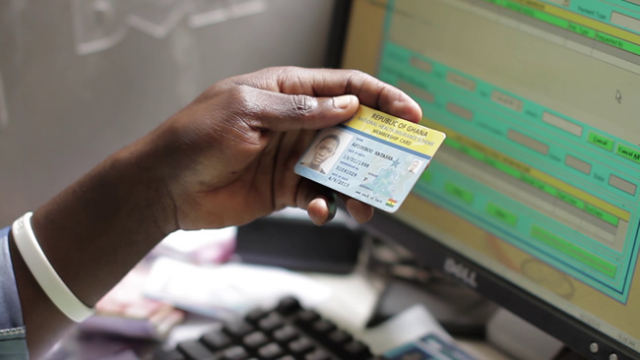Senior lecturer at the Department of Public Administration and Health Services Management at the University of Ghana, Dr Gordon Abekah-Nkrumah has called for an urgent restructuring of the National Health Insurance Scheme (NHIS) to be more responsive to preventive care delivery.
He believes if the objectives of primary health care are to be achieved, promotive and preventive services must not be sacrificed at the expense of curative care.
According to him, the inadequate funding for primary health care, particularly preventive service must be of priority to the government rather than embarking on its ambitious Agenda 111; aimed at constructing 111 hospitals across the country.
"The NHIS is becoming more like a sickness fund rather than a health fund because it is more biased to curative care. There is the need to find a way to link preventive care to NHIS and also open up opportunities for private sector participation within that particular ecosystem," he said.
The Public Health Expert made these comments at a media engagement by the Centre for Democratic Development Ghana (CDD-Ghana) on a post-election dialogue to assess some perennial health challenges and responsiveness of the 2020 New Patriotic Party (NPP) manifesto.
Dr. Abekah-Nkrumah wants the financing gap that is associated with the scheme to be addressed in order to avoid policy holders from bypassing primary health care facilities due to lack of basic services such as laboratory services as well as proximity to the district hospitals.
He also said the National Health Insurance Authority doubling as a regulator and a participant in the health sector creates a lot of inefficiencies. This he said has resulted in NHIS expenditure going way above the 10% threshold for social health insurance.
In his view, to achieve increase in enrollment, there is the need for hospitals to be decongested and create enough room for the private sector to participate
"Why will you want a hypertensive patient to go and queue up in the hospitals and clot the place while they can go to the pharmacies if they do not have any major issues. Because what are they going to do? They are only going for a refill so why should they go and sit in the hospitals? We need to relook at restructuring all these to make sure that when it comes to all these, people will not walk to Korle-Bu just for refill when it is so expensive" the public health expert explained.
The Senior Lecturer also bemoaned the delay in reimbursements of claims for services provided by healthcare providers. These delays he said are serving as a disincentive for service providers to embrace the NHIS.
He, however, called a review in the legislation establishing the NHIS to make sure that the finance minister and by extension the government to redirect funds for the scheme into other ventures. This he believes will need the political will to be implemented.
Latest Stories
-
Let’s live peacefully and shame our saboteurs – Savannah executives of NPP, NDC
2 hours -
Reconstruction of Agona-Nkwanta-Tarkwa road 80 per cent complete
3 hours -
Internet penetration: 10.7 million Ghanaians offline – LONDA Report
3 hours -
USC cancels grad ceremony as campus protests against Israel’s war in Gaza continue
3 hours -
Harvey Weinstein’s 2020 rape conviction overturned in New York
3 hours -
US Supreme Court divided on whether Trump can be prosecuted
3 hours -
There’s enough justification for Affirmative Action Bill to be passed – Minka-Premo
3 hours -
Don’t allow people to manipulate you into vaccine hesitancy – Dr Adipa-Adappoe
3 hours -
Suspend implementation of Planting for Food and Jobs 2.0 for 2024 – Stakeholders
3 hours -
Parkinson’s disease no longer confined to the elderly – Public Health Physician, Dr Momodou Cham warns
3 hours -
Persons living with Parkinson’s disease appeal for support as they face stigmatization
4 hours -
36-year-old-trader sentenced for stealing employer’s money
4 hours -
9 signs you’re falling in love with someone who thoroughly enjoys emotional manipulation
4 hours -
Catholic Diocese of Keta Akatsi hosts Parkinson’s support group meeting
4 hours -
Wa Naa appeals to Akufo-Addo to audit state lands in Wa
4 hours

